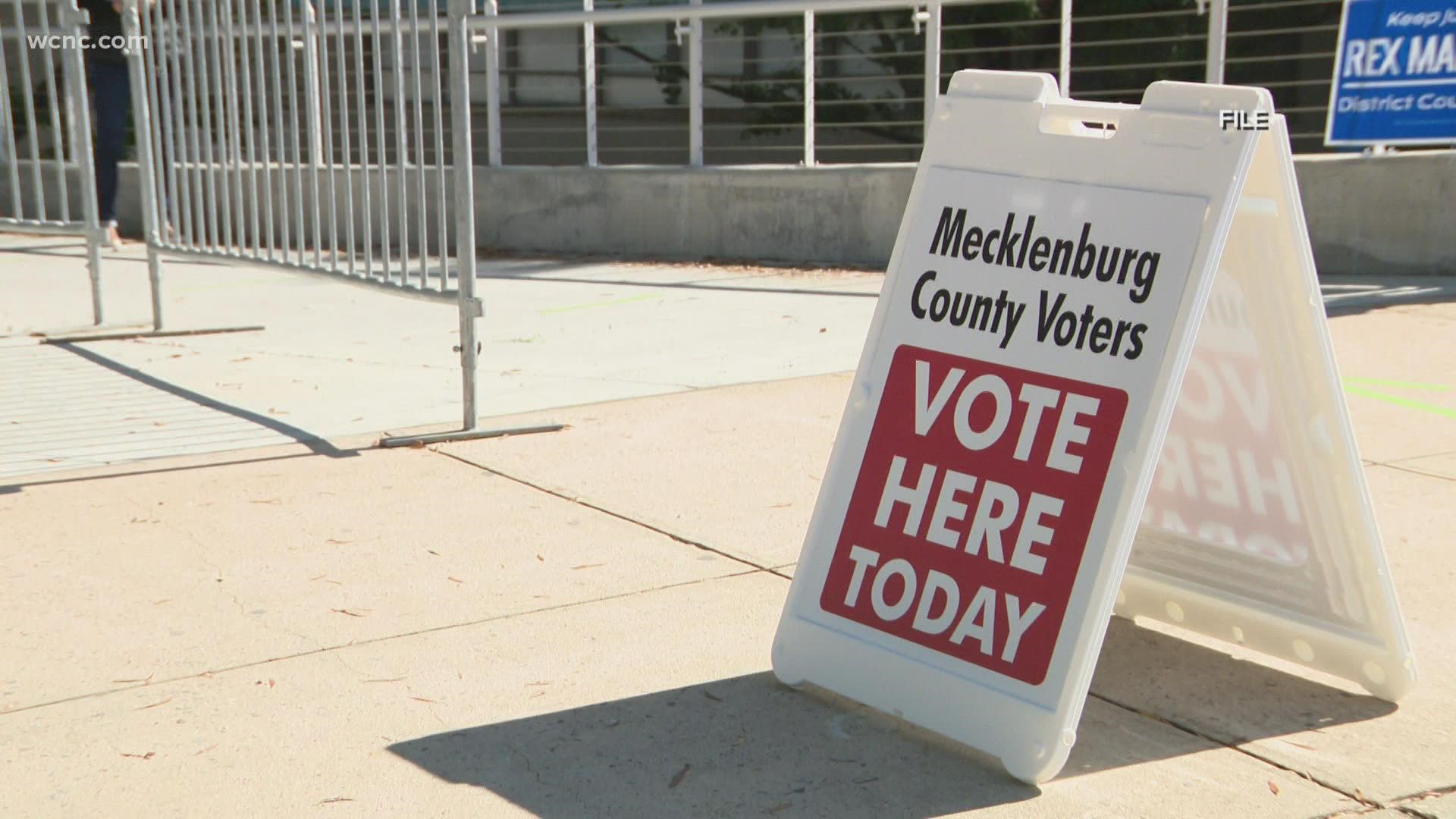RALEIGH, N.C. — North Carolina election officials won't approve for now voter registration applications of convicted felons still serving probation or parole, citing appeals after a recent ruling struck down a law that restricted the restoration of offenders' voting rights.
A panel of trial judges on Monday declared unconstitutional a 1973 law that requires the “unconditional discharge of an inmate, of a probationer, or of a parolee” before their voting rights can be restored. That means a felony offender who is released from jail or prison or doesn't serve time behind bars must wait until after their monitoring by public safety officials — perhaps for several years — to return to the ballot box.
Tens of thousands of offenders could be affected by this ruling. The majority on a three-judge panel wrote that under the ruling, “if a person otherwise eligible to vote is not in jail or prison for a felony conviction, they may lawfully register and vote in North Carolina."
Republican legislative leaders — who with the State Board of Elections was sued over the law in 2019 by ex-offenders and civil rights groups — announced late Wednesday they would appeal the decision to the state Court of Appeals. And their lawyers asked the trial court panel delay enforcement of the majority's ruling because of the upcoming appeal, saying in part it was too close to the May 17 primary to change the registration rules.
An “imminent” appeal was one reason cited by the State Board of Elections on Tuesday in a memo directing county election officials not to grant registrations yet for these offenders. Board general counsel Katelyn Love also wrote that Monday's ruling appears to conflict with a state Supreme Court order last September involving the same lawsuit.
That order, which addressed a preliminary injunction issued by the same panel of trial judges, said that “the status quo be preserved" for registration rules while an appeal of this injunction continues. That matter hasn't been resolved, according to Love.
For now, Love wrote, county election boards should mark voter registration applications of felony offenders on probation, parole or post-release supervision as “incomplete."
Two of the three trial judges wrote Monday that the voting rights restriction, which originates from Reconstruction-era efforts to prevent Black people from voting, still discriminates against Black offenders today. They cited evidence presented in the lawsuit trial in August that found over 42% of those offenders prohibited from voting because of felony probation, parole, or post-release supervision from a state court conviction are African American — a percentage twice as high as North Carolina's Black voting-age population.
Well over 56,000 people in North Carolina were prevented from registering under the challenged law, according to additional trial evidence cited last summer. There are currently 7.26 million registered voters in the state.
Judges Lisa Bell and Keith Gregory wrote the legislature’s decision nearly 50 years ago to deny the right to vote for offenders “living in the community was itself independently motivated by racism.” Democrats controlled the legislature at the time. Republicans hold majorities today.
Lawyers for legislative leaders acknowledged in a legal brief last year that for much of the state’s history, felony disenfranchisement was used to exclude African Americans from voting. But they said there was no evidence the 1973 law was motivated by discriminatory intent — rather, it treats all offenders the same. A dissenting judge said as much this week in stating he would have leave the law in place.
The state constitution grants the legislature authority to pass laws that lay out how a person convicted of a felony can have voting rights restored. A leading Republican on Wednesday accused Gregory and Bell of substituting state law for their “preferred policy" — similar to the injunction they issued in August.
“This is an unrivaled attempt by judges to legislate from the bench,” Sen. Warren Daniel, a Burke County Republican and co-chairman of the Senate elections committee, said in a news release.

